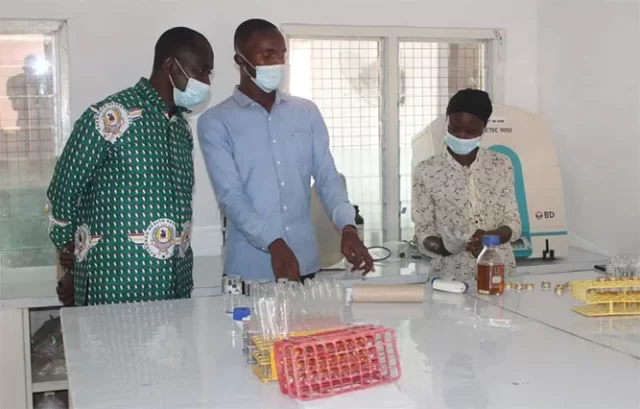By Mavis Offei Acheampong
Ghana’s Navrongo Health Research Centre has received approval to start the first-in-human Lassa Fever Vaccine Trial in the West Africa Sub Region. The first cohort of 10 participants has been assessed and administered a dose for the trial. The second cohort will be assessed in November with increasing doses.
The Director of the Navrongo Health Research Centre, Dr. Patrick Odoom Ansah says the trials not only prepare Ghana for Public Health Emergencies, but also for the nation’s contribution to global health. Lassa fever is an animal-borne, acute viral illness spread by the common African rat.
In parts of West Africa, including Sierra Leone, Liberia, Guinea and Nigeria, it is endemic. Neighbouring countries are also at risk because the animal vector lives throughout the region. Transmission of Lassa virus to humans occurs most commonly through ingestion or inhalation. The rodents share the virus in urine and droppings. Direct contact with these materials, through touching, eating contaminated food, or exposure to open cuts on a person can lead to infection, with symptoms usually gradual.
The Navrongo Health Research Centre, in August 2022, got approvals from the Food and Drugs Authority (FDA), Ghana Health Service’s Ethics Board, the Navrongo Health Research Centre’s Institutional Review Board, and the chiefs in the Kassena Nankana community to begin the First in-Human Lassa Fever trial.
It has taken the centre over three years of study to arrive at the point of having the first cohort of participants accessed and dosed in September. The centre, as of October 15, 2022 had dosed 10 participants under the first cohort, while Kintampo had dosed two participants. The second cohort for the study is expected to start in November this year.
The Director of the Navrongo Health Research Centre, Dr. Patrick Ansah says the vaccine’s safety signals will be observed within one month for the second cohort to start. 3 doses are being used now. He said the first cohort was given the lowest tolerable dose that is known and once it is safe it will be escalated to the next tolerable dose and look at it in another group of 12 people and to the other third group and if safe in all three doses, then it will be used.
‘What they are looking up to is the reaction to the body so we will look at which one reacts to the body or the body tolerates better.’ The phase one looks at the safety of the doses that can be tolerated before it is used. A selected effective dose will be given in phase two and if it generates a positive reaction against the virus then we move to Phase three where the whole population will be given the vaccine.
A lot more participants will be given doses to see how efficacious the vaccine will be. All the phases are used to modify the use of the vaccines, while Phase four will be the license bit of the vaccine. It continues forever. “All drugs and vaccines that have been licensed for use by the FDA are still in the phase four. The FDA and other international body still look at the reactions and administration of the drug and as and when they notice any challenge take action on it.’ There is currently no documented Lassa Fever case in Ghana. However, per the Lassa Fever Epidemiology in the sub-region, Liberia and Nigeria have had minor outbreaks, with sporadic cases in Togo, Burkina Faso, and Cote d’Ivoire.
Ghana was therefore chosen for the phase one study in West Africa, because it has not recorded any Lassa Fever case, and is a naïve population. Dr. Patrick Ansah says Lassa fever is likely to be the next pandemic the world may face, after Ebola and other hemorrhagic fevers, and it may plague particularly the West Africa sub-region. If we have not seen any yet, it is not possible that there will be Lassa fever around us and none in Ghana.
Phase one is normally done in naïve countries and Ghana is the only naïve country for that. Ghana is the only feasible country for the trial. Dr. Ansah said not only are researchers running against time to get the country prepared for any public health emergency, but the trial of the vaccine in the country would also be Ghana’s contribution to the World for a Lassa Fever Vaccine.
“The vaccine is likely to be taken to countries where Lassa Fever cases have been detected, and it will be measured against preventing actual cases and by the time it becomes a sub-regional emergency or epidemic and Ghana will be having cases, Ghana will have access to the vaccine. That is our contribution to global health and not preparing ourselves alone’. The trial is expected to take about 18 months to determine whether the vaccine will work to protect humans from Lassa Fever at a particular dosage and schedule.
The clinical trial for the Lassa Fever Vaccine was done with the Kintampo Health Research Centre, while funding came from the Bill and Melinda Gates foundation.
















